整理下使用 Vitepress 搭建博客过程中使用过的一些资源和方案
主要参考站点
VitePress快速上手中文教程,这个站点扩展很全,包括静态部署选择,样式美化,第三方插件等,都是手把手教程,很细
XaviDocs个人技术文档,借鉴了部分 VitePress 的使用经验
vitepress主题 vitepress-theme-async 源码,借鉴了部分对 Vitepress 的配置和操作逻辑,阅读这些代码对你理解 Vitepress 会有很大帮助
晚阳Crown,借鉴了使用 Cloudflare R2 搭建图床以及使用 Cloudflare 管理域名的经验
详细配置参考
下面会列出 Vitepress 使用细节的一些配置参考文章,包括域名、图床、搜索、评论系统、统计文章等模块
暗黑模式切换动画
参考这篇文章
使用 DocSearch 搜索
官方教程 Vitepress - Algolia Search
详细教程 VitePress快速上手中文教程 - DocSearch
参考我的配置
ts
import type { DefaultTheme } from 'vitepress'
export const algolia: DefaultTheme.AlgoliaSearchOptions = {
appId: "appid",
apiKey: "apikey",
indexName: 'weizwz',
placeholder: '搜索文档',
translations: {
button: {
buttonText: '搜索文档',
buttonAriaLabel: '搜索文档'
},
modal: {
searchBox: {
resetButtonTitle: '清除查询条件',
resetButtonAriaLabel: '清除查询条件',
cancelButtonText: '取消',
cancelButtonAriaLabel: '取消'
},
startScreen: {
recentSearchesTitle: '搜索历史',
noRecentSearchesText: '没有搜索历史',
saveRecentSearchButtonTitle: '保存至搜索历史',
removeRecentSearchButtonTitle: '从搜索历史中移除',
favoriteSearchesTitle: '收藏',
removeFavoriteSearchButtonTitle: '从收藏中移除'
},
errorScreen: {
titleText: '无法获取结果',
helpText: '你可能需要检查你的网络连接'
},
footer: {
selectText: '选择',
navigateText: '切换',
closeText: '关闭',
searchByText: '搜索提供者'
},
noResultsScreen: {
noResultsText: '无法找到相关结果',
suggestedQueryText: '你可以尝试查询',
reportMissingResultsText: '你认为该查询应该有结果?',
reportMissingResultsLinkText: '点击反馈'
}
}
}
}添加图片查看器 Fancybox
Fancybox 是一款非常流行且功能强大的 JavaScript 图片查看库,集成可参考这篇文章
添加不蒜子统计
参考这篇文章
文章统计,自定义首页,归档页,标签页
参考这篇文章
其他相关参考资料:
静态部署
部署到 GitHub Pages ,参考文章
主要是建立 GitHub 部署工作流,项目根目录建立文件 .github/workflows/main.yml,我之前的配置如下:
yml
# 将静态内容部署到 GitHub Pages 的简易工作流程
name: Deploy static content to Pages
# env:
# VERCEL_ORG_ID: ${{ secrets.VERCEL_ORG_ID }}
# VERCEL_PROJECT_ID: ${{ secrets.VERCEL_PROJECT_ID }}
on:
# 仅在推送到默认分支时运行。
push:
branches: ['main'],暂停部署到 GitHub pages
# 这个选项可以使你手动在 Action tab 页面触发工作流
workflow_dispatch:
# 设置 GITHUB_TOKEN 的权限,以允许部署到 GitHub Pages。
permissions:
contents: read
pages: write
id-token: write
# 允许一个并发的部署
concurrency:
group: 'pages'
cancel-in-progress: true
jobs:
# 构建
build:
runs-on: ubuntu-latest
steps:
- name: Checkout
uses: actions/checkout@v4
with:
persist-credentials: false
fetch-depth: 0
# github page deploy
- name: Set up pnpm
uses: pnpm/action-setup@v4
with:
version: 9
- name: Set up Node
uses: actions/setup-node@v4
with:
node-version: 20
cache: 'pnpm'
- name: Setup Pages
uses: actions/configure-pages@v4
- name: Install dependencies
run: pnpm install
- name: Build
run: pnpm run build
- name: Upload artifact
uses: actions/upload-pages-artifact@v3
with:
# Upload dist repository
path: './dist'
# 部署
deploy:
environment:
name: github-pages
url: ${{ steps.deployment.outputs.page_url }}
needs: build
runs-on: ubuntu-latest
name: Deploy
steps:
- name: Deploy to GitHub Pages
id: deployment
uses: actions/deploy-pages@v4
# vercel deploy
# - name: Restore file modification time 🕒
# run: find docs/post -name '*.md' | while read file; do touch -d "$(git log -1 --format="@%ct" "$file")" "$file"; done
# run: "git ls-files -z | while read -d '' path; do touch -d \"$(git log -1 --format=\"@%ct\" \"$path\")\" \"$path\"; done"
# - name: Install Vercel-cli🔧
# run: npm install --global vercel@latest
# - name: Pull Vercel Environment Information
# run: vercel pull --yes --environment=production --token=${{ secrets.VERCEL_TOKEN }}
# - name: Build Project Artifacts
# run: vercel build --prod --token=${{ secrets.VERCEL_TOKEN }}
# - name: Deploy Project Artifacts to Vercel
# run: vercel deploy --prebuilt --prod --token=${{ secrets.VERCEL_TOKEN }}这个配置,也是可以部署到 Vercel 的,注释掉 github-pages 部分,放开后面的 vercel deploy 部分即可。需要注意构建命令和输出目录,原始构建命令为 npm run docs:build,输出目录 docs/.vitepress/dist
添加 Github Giscus 评论系统
Github Giscus 的好处简单易用,限制的地方在于需要仓库公开,代码必须托管在 Github 上。参考文章
其他链接:
使用 Cloudflare 管理域名
详细教程:Cloudflare托管域名
如果你的域名在阿里云或者腾讯云,找到域名解析,修改DNS服务器地址为 Cloudflare 上的即可
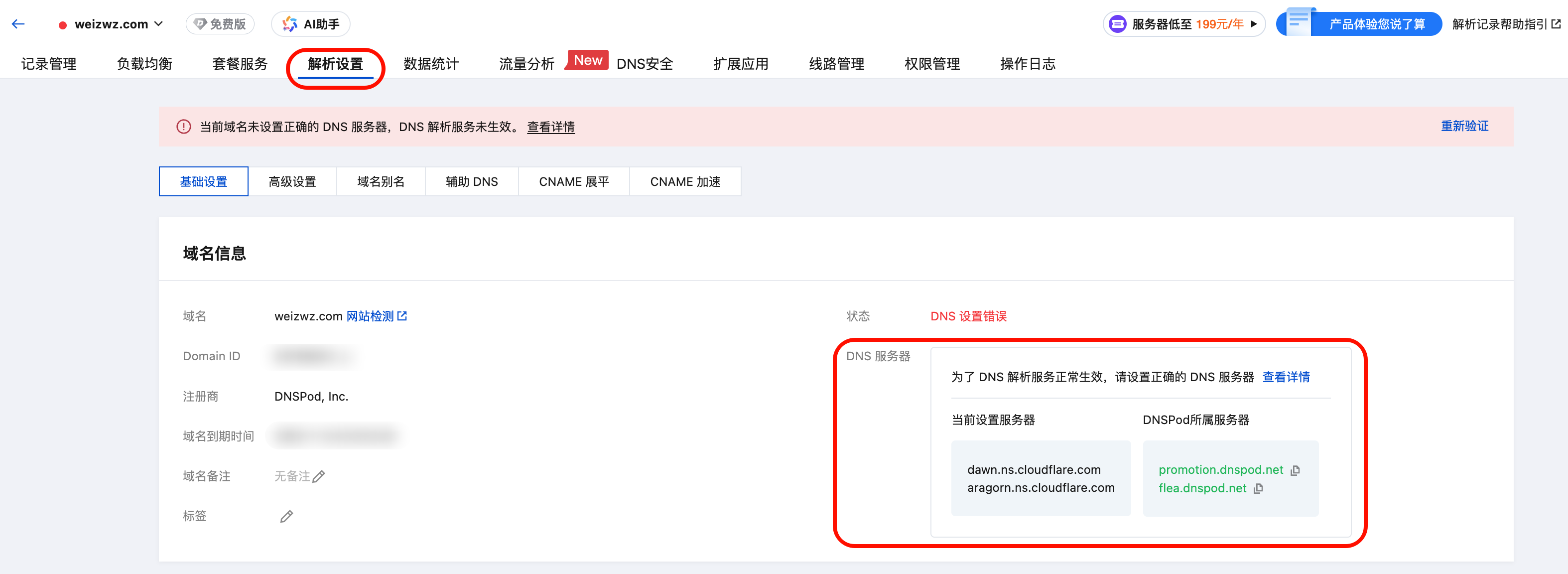
使用 Cloudflare R2 配置图床
教程:Cloudflare R2对象存储搭建高速免费图床完全指南
这篇文章很详细,先配置 R2,然后使用自定义域名。
注意,配置过程中创建的 API令牌,访问密钥等,需要我们储存起来,方便后续在 PicList 中使用;
第二个需要注意的是,图床我们一般使用 子域名 。比如,你在 Cloudflare 上管理的域名为 weizwz.com,R2 的自定义域名你可以输入 p.weizwz.com,然后 Cloudflare 会自动给你添加 子域名解析,实在是在贴心了。

关于图床API的使用,就是上传和删除等操作,这里建议使用工具 PicList ,官网文档 很详细,包括下载和配置等
由于我们使用的是 Cloudflare R2,重点查看这里 PicList 内置AWS S3 配置
上传配置里,我们可以设置水印,上传时压缩图片,还有图片转换为 webp 格式,进一步减小图片体积
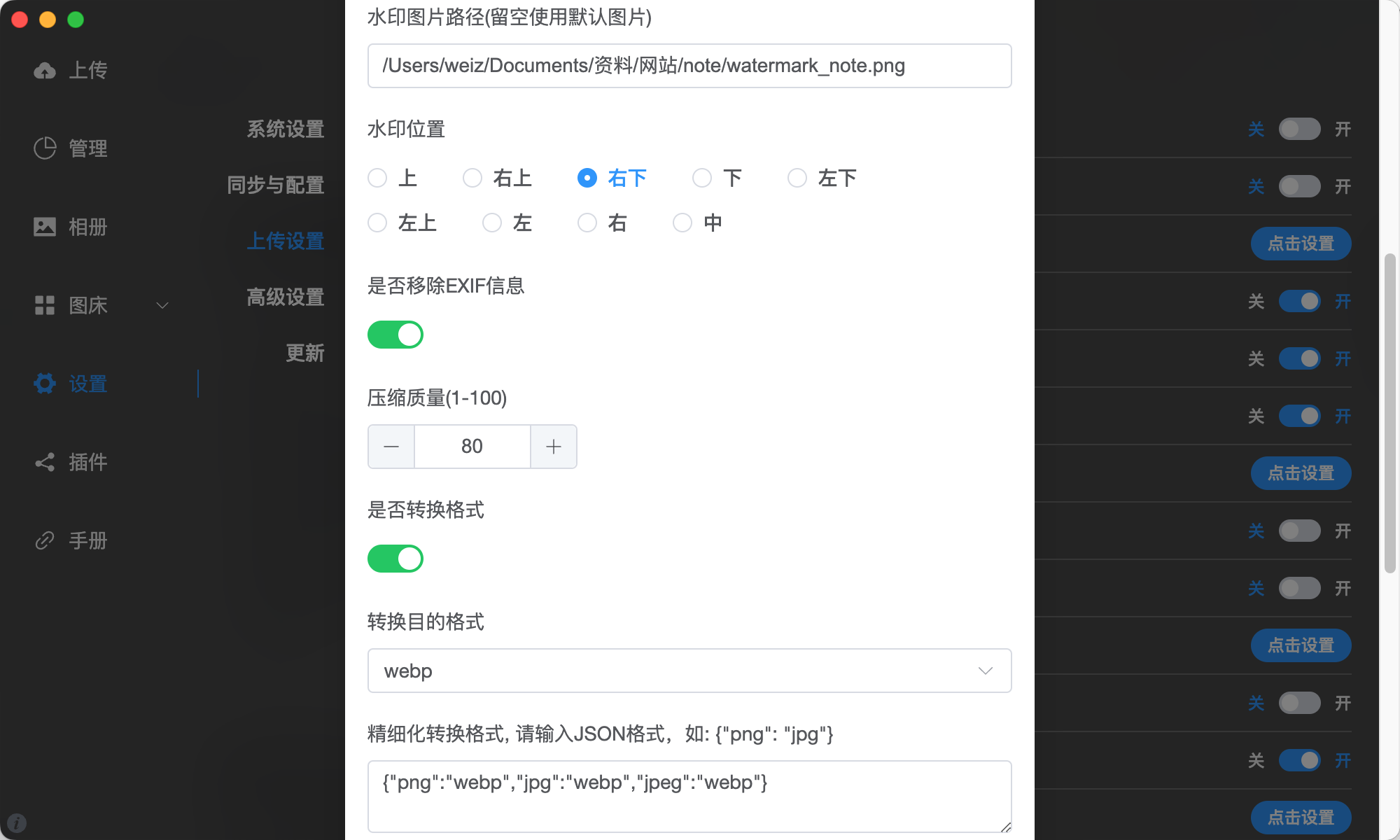
同步配置,参考 设置配置同步,可以在 github/gitee/gitea 中创建一个私有仓库,然后将 PicList 配置上传。
配置同步需要的 GitHub token,点击GitHub上的个人头像,Settings,拉到最下面点击 Developer settings,然后会跳转到新界面,按下图创建

创建好后,复制 token,粘贴到 PicList 配置里,然后就可以上传你的配置到仓库了。
使用 Cloudflar Pages 托管网站
参考文章:Cloudflare Pages免费部署Hexo博客
这篇文章中的博客是 Hexo 框架,因此需要修改构建配置,我的构建命令是 pnpm i && pnpm run build,构建输出 ./dist。这是因为我对 Vitepress 原始构建配置有修改,如果你没有修改这块的话,
构建命令应该是 pnpm i && vitepress build docs,输入目录 docs/.vitepress/dist
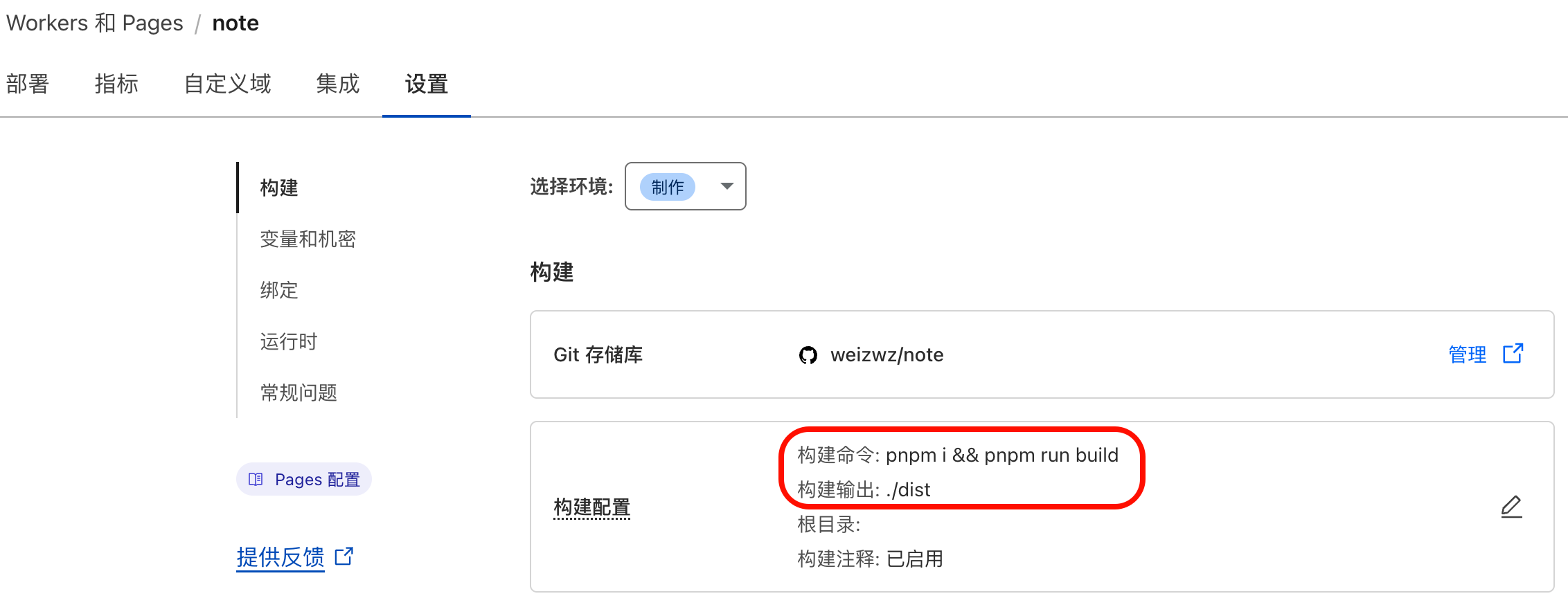
构建监听分支,默认主分支 main,当 main 分支有修改时,Cloudflare 将自动构建部署。
使用 Twikoo 评论系统
Twikoo 评论,需要部署前后端,包括数据库,操作略有复杂,但是不限制代码托管和服务托管,自定义程度更高
Twikoo官方文档 ,非常详细
然后选择云厂商部署,我这里选择的 Vercel 部署,因为操作相对简单,使用 Cloudflare workers 部署 限制较多,部署成功后,修改默认域名为你的子域名,需要去你的域名管理那上修改 DNS 解析。
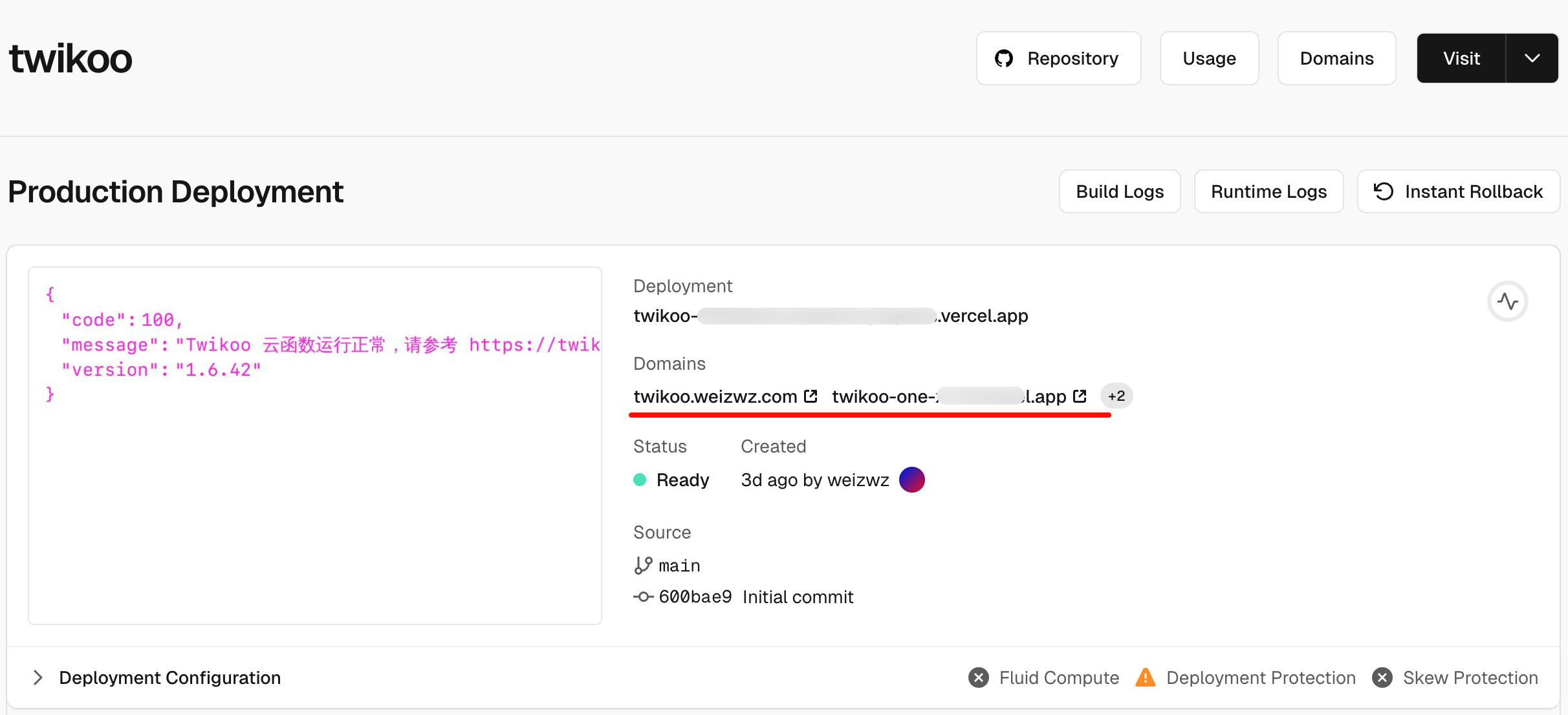
以 Cloudflar 为例,添加 CNAME 类型,子域名 twikoo,内容 cname.vercel-dns.com

后端部署完成后,需要前端项目也集成,修改我们的 Vitepress 项目,参考下面链接
总之步骤就是:pnpm install twikoo -> 封装 Twikoo.vue 组件 -> 插入 Layout 插槽
前后端都处理好后,界面就能正常展示了,但是我们还要处理下邮件功能
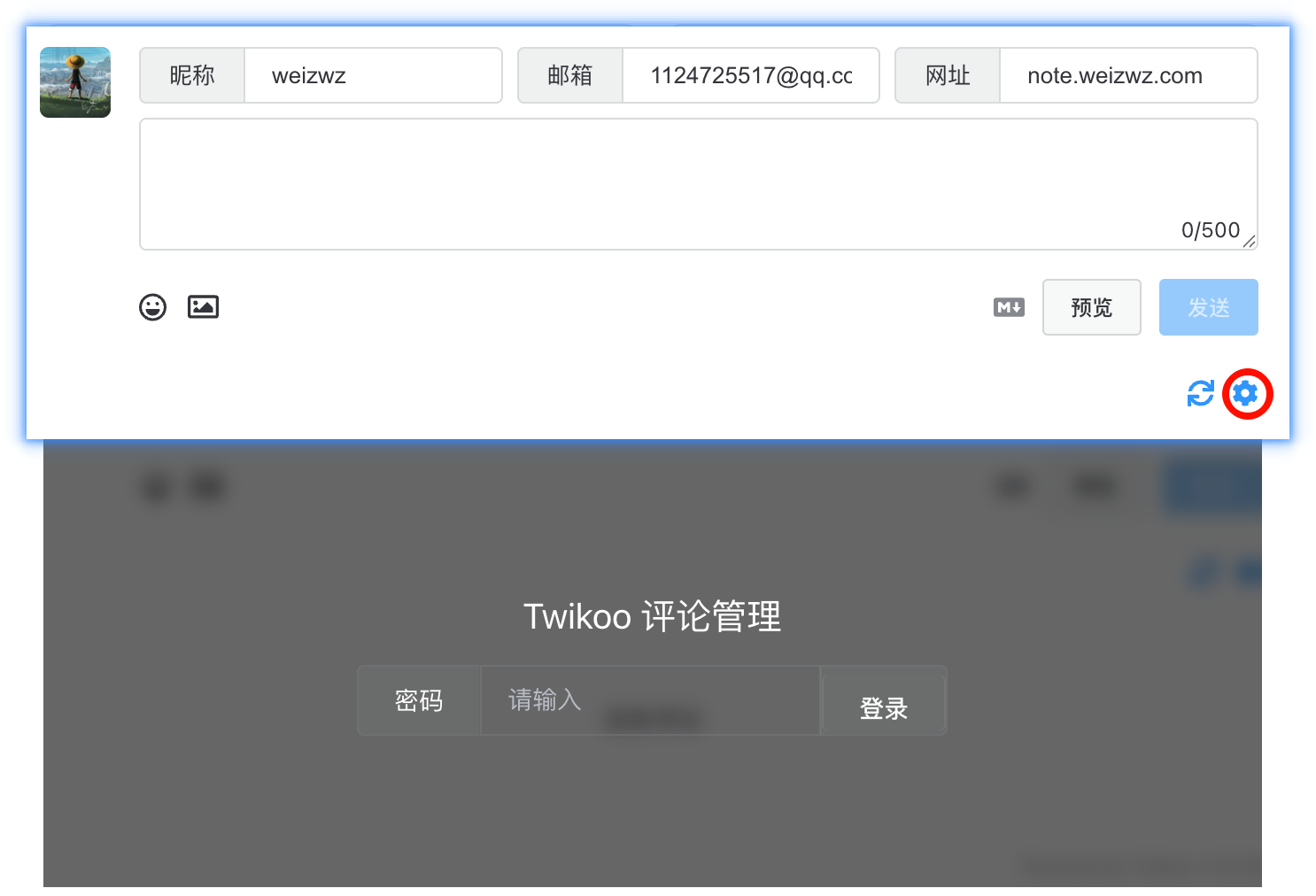
首次打开设置按钮后,会有设置密码框,设置一个复杂密码并记住。然后进入配置管理,选择邮件通知
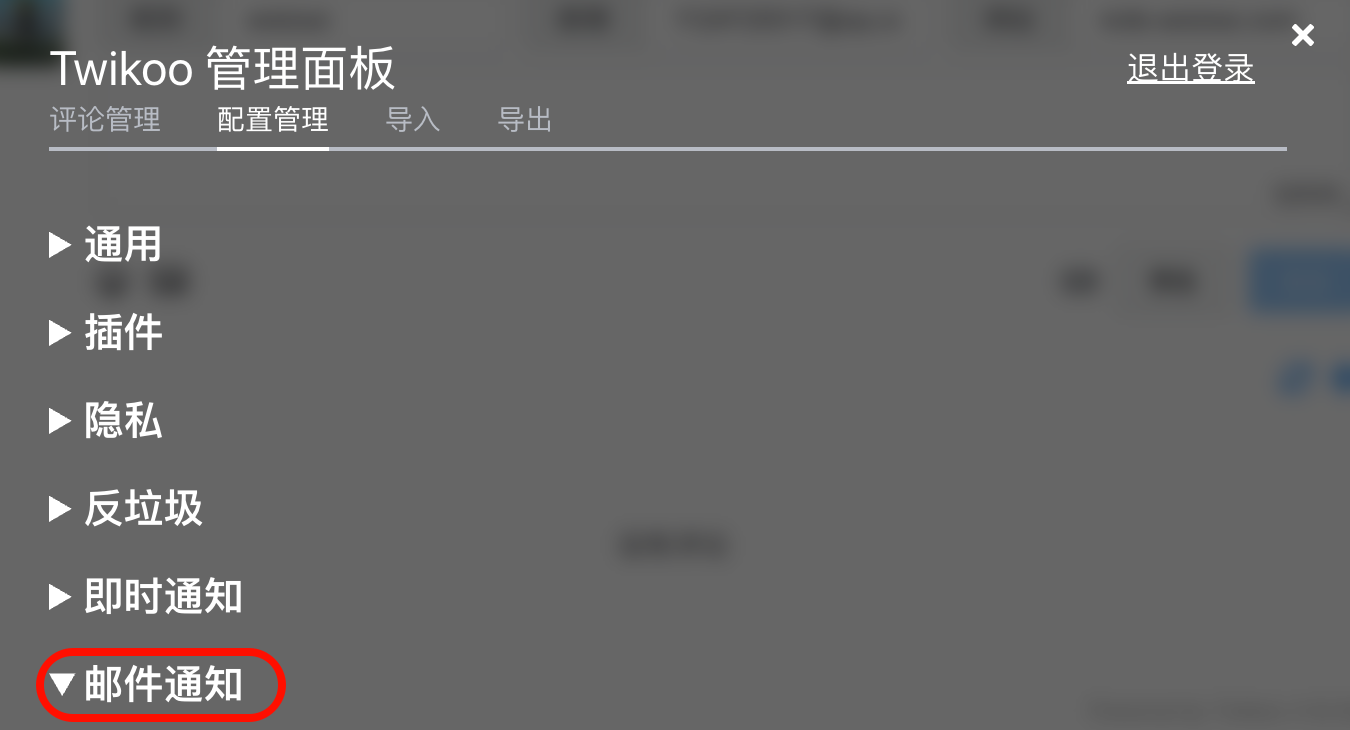
按照提示输入你的邮箱,邮箱授权码等即可。最后有个邮件测试,测试后,你能收到一封邮件,说明功能可用了
暂时只有这些,后续有新的内容时再补充......